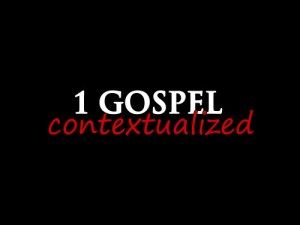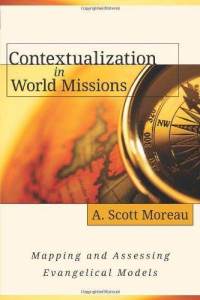 In Roland Allen’s excellent book on missions, The Spontaneous Expansion of the Church
In Roland Allen’s excellent book on missions, The Spontaneous Expansion of the Church, he tells the story of a Sioux Indian chief named Big Hunter who wished to become a Christian. The problem was that Big Hunter was a polygamist. He had several wives, as was customary in Sioux culture.
The Presbyterian missionaries who were working with Big Hunter told him that if he wanted to follow Jesus, he had to put away all of his wives except one. This is what the Bible and the Gospel of Jesus Christ expected from those who were children of God.
Big Hunter was now faced with a dilemma. One the one hand, he really wanted to become a Christian, but on the other hand, he knew that any wife he got rid of would starve to death. So, not knowing what else to do, he hanged all of his wives except the one he decided to keep. Then he came to the missionaries and told them that he had done what they wanted.
They were shocked and outraged at his actions, and drove him away as a murderer. Big Hunter despaired of ever becoming a Christian, married two new wives, and lived as an unbeliever for the rest of his days.
Did the missionaries do the right thing? If not, what should they have done instead?
How you answer those two questions is called “contextualization.”
What is Contextualization?
Contextualization is the way which mission workers apply the Gospel of Jesus Christ and the truths of Scripture to the various cultures in which the missionaries work.
Contextualization recognizes two key important truths about the Gospel and the world to which we are to preach the Gospel.
- The Gospel was originally given in a Greco-Roman-Jewish culture.
- Not all cultures have the same values, practices, and beliefs as those found in the days of Jesus and the apostles.
So based on these two key truths, the two key questions of contextualization are this:
- Are cultures supposed to change to fit the gospel, or is the gospel flexible enough to change to fit the needs of a particular culture?
- If the Gospel can flex to fit the needs and values of a particular culture, how far can one go in adapting the Gospel to that culture?
Most Christians, when they first encounter these questions, are tempted to think, “No! The Gospel is given directly to us by God through Jesus Christ, and is perfect in exactly the way it was revealed. Nothing can be changed. It must stay exactly as it was given.”
 But nobody does this. Not even us.
But nobody does this. Not even us.
We all Contextualize
Bible translations are an example of contextualization. The Gospel did not come to us in English. It came in Greek (or possibly Aramaic). If it is true that absolutely nothing can change, then we better all learn Greek.
And this is just the beginning. Most western Christians do not realize it, but the Gospel of Jesus Christ has been radically contextualized to fit with western culture and western civilization.
So if we have contextualized the Gospel for our culture, why can it not also be contextualized for other cultures? And if it can, how far can we go? What are the nonnegotiable elements of the Gospel? What are the equivalent values, beliefs, practices that are found in other cultures which can be adopted and adapted to fit with the values, beliefs, and practices within the biblical Gospel?
 Now, this post is actually a book review of A. Scott Moreau’s Contextualization in World Missions.
Now, this post is actually a book review of A. Scott Moreau’s Contextualization in World Missions. I was sent this book by Kregel Publications for review on this blog, and although this post has not really been a review of the book so far, I have provided you with a brief summary of why this book is important, and why this book contains valuable and useful information for all of us involved in stateside or overseas missions work.
This book contains a vast array of information about all the work that has been done over the years by various authors, missionaries, and scholars in the work of gospel contextualization.
From an information perspective, this book is unparalleled in it’s scope and comprehensiveness. Nearly the entire book is focused on summarizing and critiquing the major views, theories, and practices of contextualization. It contains chapters on the presuppositional concerns in contextualization, how to discern the good from the bad, tools for analysis and application, and several informative chapters on various examples of evangelical contextualization.
There is a drawback to the book, however. Though I love reading about contextualization and love even more trying to apply the principles of contextualization to the Gospel work I am doing today, I found myself incredibly bored with this book. Though the book is very informative, it is also quite dull. It reminded me of most of the textbooks I had to read in seminary.
The majority of this book contains a summary of the views on various topics related to the issues of contextualization in missions. The author himself rarely shows up in the text, except to provide a brief transitional paragraph or two between summaries of what other authors have written. Though these types of books are a great way to grasp all the various views and approaches on a particular topic, I find them difficult to read. But if you are a professor, missionary, or seminary student that needs a detailed and thorough summary of the issues related to contextualization, this book is a good place to start.
Ultimately, Contextualization in World Missions is a great primer and summary of issues related to contextualization, and I recommend it for anyone interested in learning more about this all-important topic for understanding the Gospel and applying it to the various cultural contexts in which we work and minister.




why is contextualization needful?
Because people understand better in their own context.
For SM, would you say he views contextualization primarily as something the evangelist/missionary doe *for* the people he’s trying to reach? Does he offer a difference between contextualization and adaptation?